Big Drop Brewing | Galactic Extra Dark
Many craft beers featuring chocolate — or more commonly its main ingredient, cacao — are high alcohol behemoths. Pastry Stouts and related styles are like liquid desserts, and match the luxurious character of chocolate with the indulgence of double digit ABVs. However, one of the most awarded chocolate beers in the world — Big Drop Galactic Extra Dark — has almost no alcohol at all.
Big Drop Galactic is a non-alcoholic Milk Stout brewed with Ghanan cacao from TCHO Chocolate, and it’s brewed to about .4% ABV (the legal limit to be considered non-alcoholic is .5%). It’s part of a wave of beers stretching the boundaries of the non-alcoholic craft beer segment and proving indulgent flavor can come without the buzz.
Big Drop was founded in London, England, in 2016 by friends Rob Fink and James Kindred (they now partner with Great Central Brewing in Chicago to supply their stateside market). Fink was a lawyer at the time, and his frequent meetings in London’s storied watering holes meant imbibing his fair share of pints. Once his first child arrived, he realized he needed to cut back on his consumption, but he wasn’t happy with the low- and no-alcohol options available at the time. So he and his friend decided to create their own and provide flavorful non-alcoholic beer to the craft market in the process.
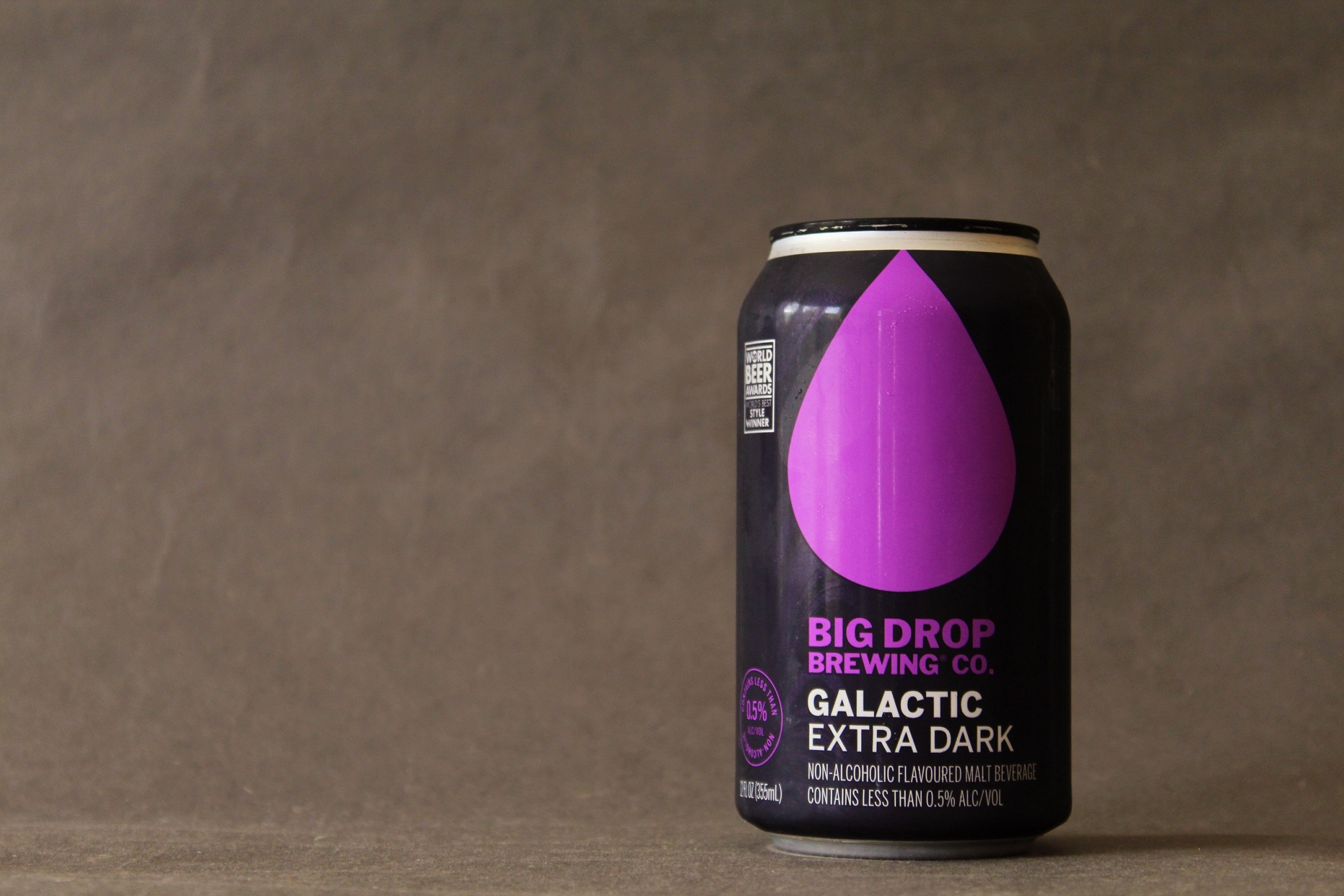
’’They tracked me down and said, ‘Can it be done?,’ and I said, ‘I think so,”” says Big Drop head brewer Johnny Clayton with a laugh. Clayton was working as a brewing consultant at the time helping small breweries get their feet under them. He was new to non-alcoholic brewing, but not to unconventional fermentation. He got his start at Wild Beer Co in Somerset, an outfit renowned for mixed-fermentation, sour, and barrel-aged beers, as well as for using esoteric ingredients.
“All sorts of weird and wonderful things got put into the beer in Somerset, from seaweed to a metric ton of raspberries,” he recalls. That experience set him up for using creative ingredients and looking at fermentation in new ways, both of which have proven handy at his latest post.
It’s All About Fermentation… Just Not Much Fermentation
Like many producers of non-alcoholic craft beer, Clayton is cagey about how exactly his booze-free beers are produced.
“I can’t get into too many specifics, but I can say we brew to strength,” he says. “We don’t use reverse osmosis or low temperature distillation or anything like that.”
These techniques can be prohibitively expensive and can have a flavor impact on the finished beer. Instead, Clayton uses careful ingredient selection to control the amount of alcohol that gets produced in the first place.
“With the grain bill, everything is tilted toward non-fermentation,” he says, meaning the malt recipe for his beer is not intended to produce a standard level of fermentable sugar. “The yeast we use is not the strongest either. It conks out pretty quick. It ferments as much as it can, and that’s at our target of .4%. We don’t suddenly crash it temperature-wise and upset the yeast and drop it all out. It just conks out on its own, which is the whole design.”
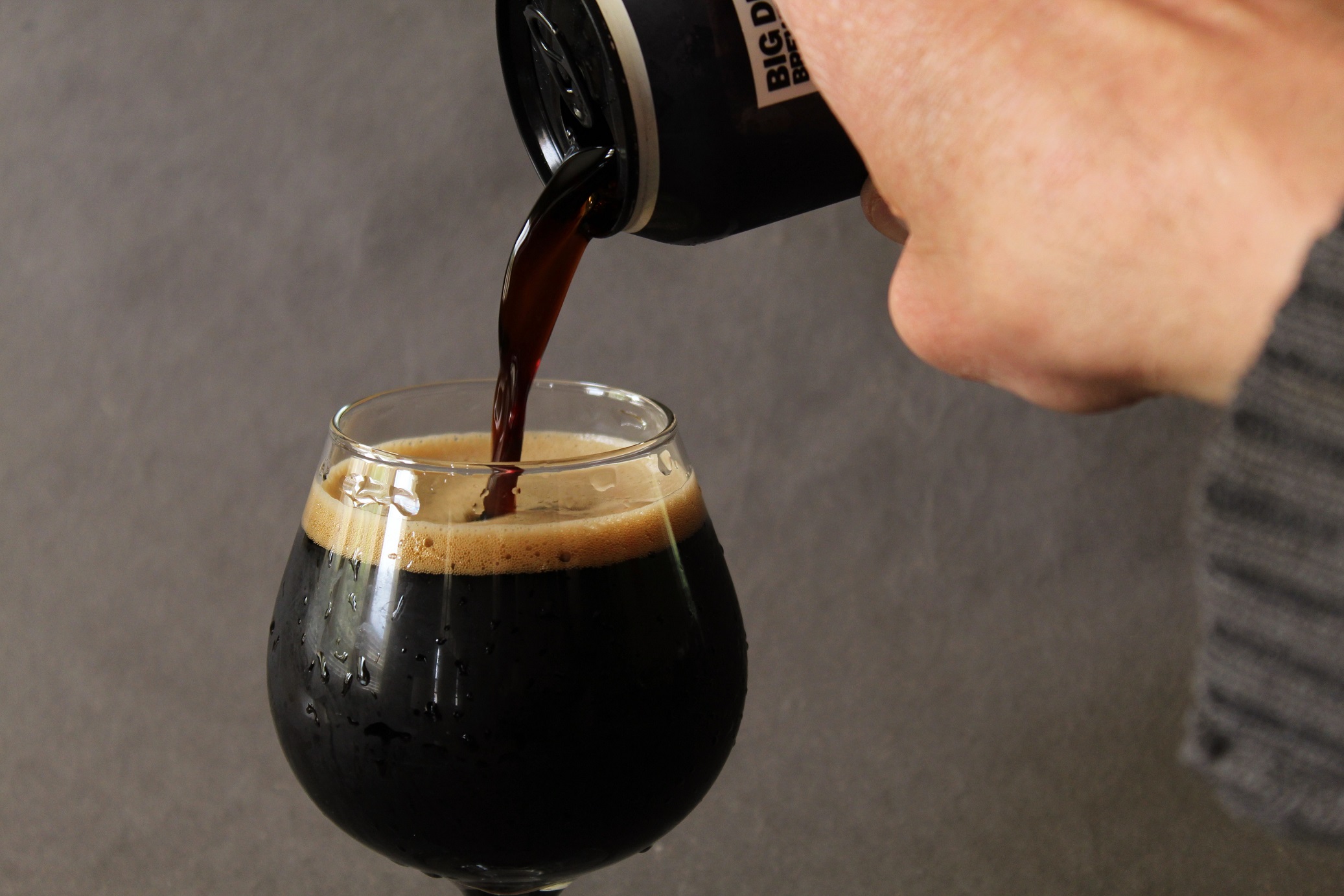
While limited fermentation of this sort does produce a different flavor profile than a standard fermentation beer would, it is much gentler on the beer’s flavor profile than other, more aggressive methods can be. The primary differences are an absence of the aromatic esters that can arise in standard fermentations, and subtle distinctions in malt flavor and mouthfeel.
Brewing NA with Cacao
For the cacao for Galactic, Clayton turned to a familiar source — TCHO, the chocolate company that provides cacao to Brewers Supply Group (BSG), a leading ingredient provider for craft breweries. TCHO is headquartered in Berkeley, California, and chances are you’ve had a beer with their cacao in it at some point. They’re one of the largest makers of craft chocolate and one of the largest purveyors of ethically-sourced cacao for the brewing industry. Clayton uses cacao sourced from Ghana for Galactic, a very popular origin for brewing due to its straight-ahead chocolatey flavor.
“That’s something I knew from early on would be a real boost to flavor,” Clayton says of TCHO’s Ghana cacao nibs. “That cocoa flavor really comes out, as well as a slickness to the mouthfeel, which in a Milk Stout is nice.”
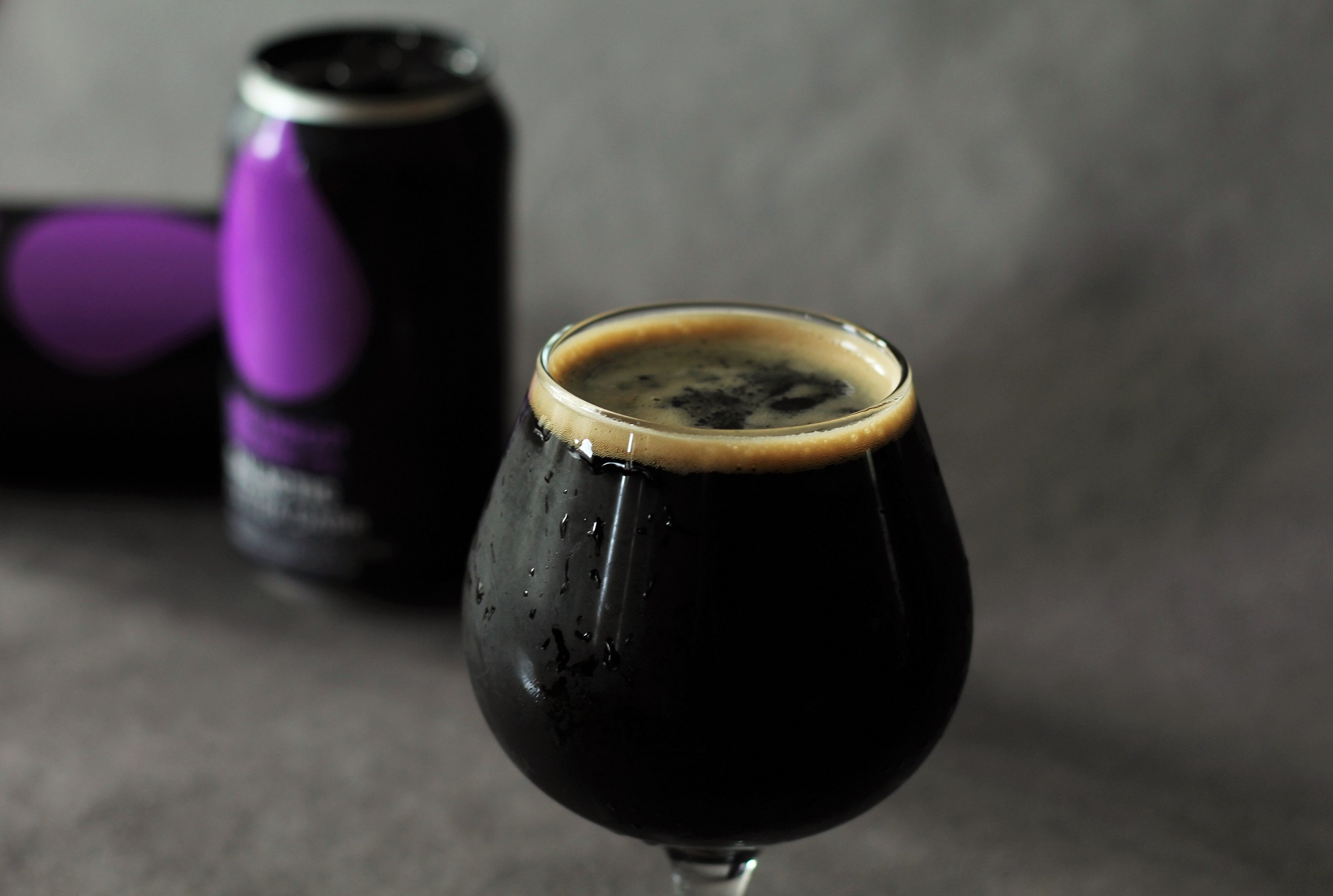
Most brewers add cacao nibs after fermentation during cold conditioning. This allows the cacao to slowly steep at a cold temperature, infusing flavor, aroma, and a silky mouthfeel without extracting bitterness or excessive acidity. Other concerns have led Clayton to add it much earlier in the process during the boil and offset those potential problems otherwise.
“We add it hot-side,” he explains. “I know a lot of people add cacao cold-side, but we do a lot of things hot-side that full-strength breweries do cold-side. Being low-alcohol, that’s one layer of protection that’s taken [to protect against contamination].”
Despite going against the grain with how he utilizes his cacao, Clayton is having tremendous success with Galactic. The beer has won nearly a dozen international medals, including a few against standard-strength beers. The roast profile, cacao, and carefully-managed fermentation prevent the beer from having the wort-like flavor that can dog even many of the best non-alcoholic beers. The result is roasty with a slight impression of sweetness, a rich but not cloying chocolate core, and a balancing hop bitterness on the finish.
“I love this beer, and it always surprises me when I open one, which is weird, because I designed it,” Clayton says with a chuckle when asked about his own relationship to Big Drop Galactic. “It’s lovely to hear as a brewer that people are enjoying it, even against full-strength beers. As someone brewing low alcohol beers, I’m trying to break that negative perception — they weren’t very good, and now they are. We’re on the right track. We’re making great beer. We always planned to make great beer, it just happens to be low-alcohol.”
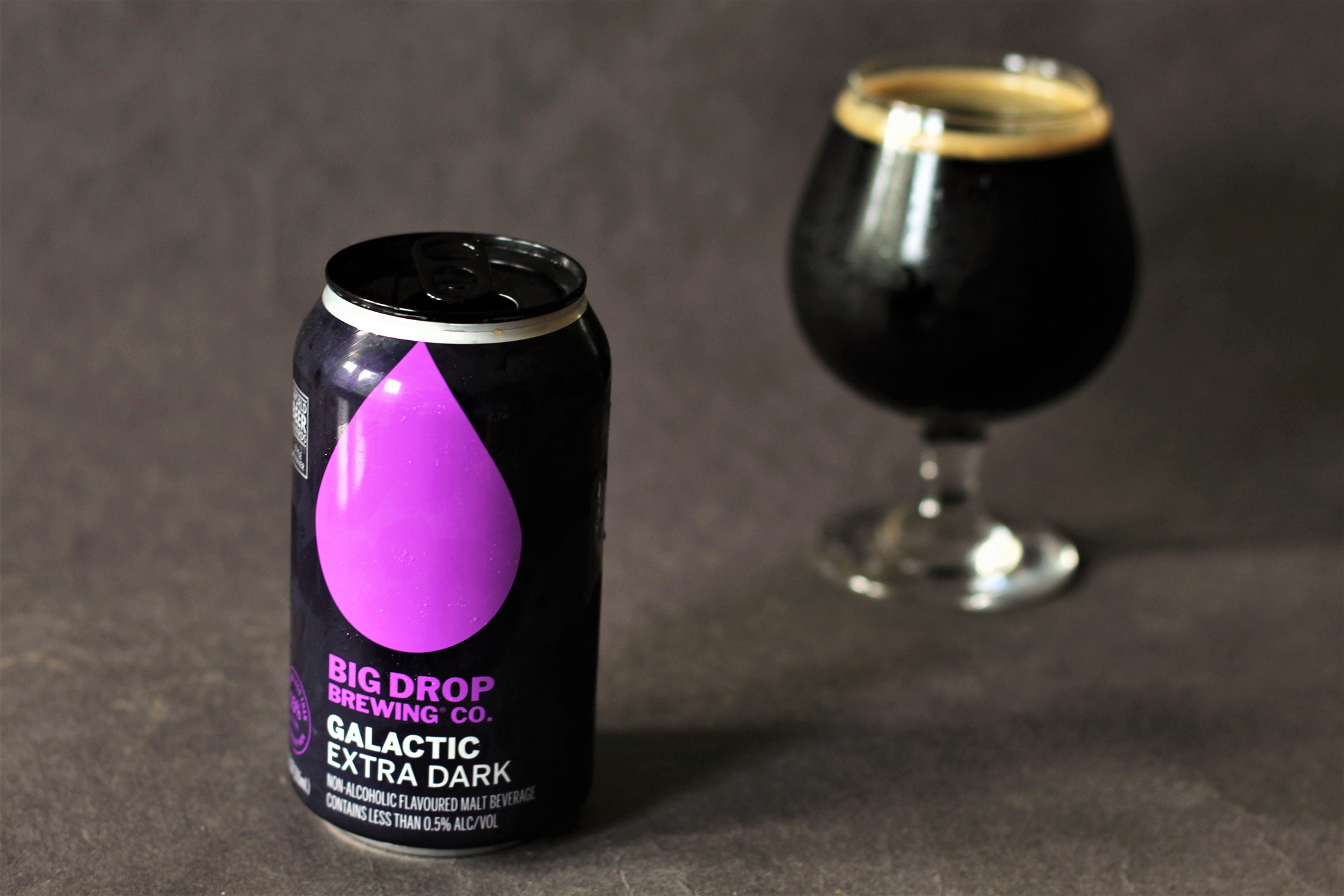
All photos by David Nilsen


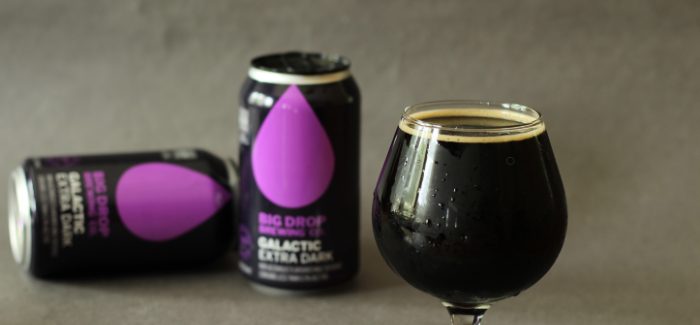

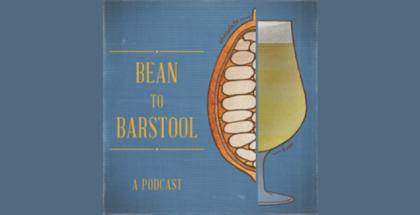

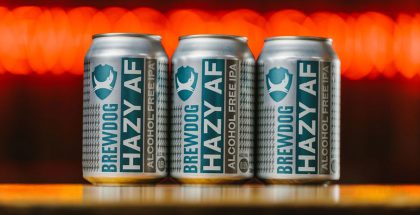

Submit a Comment